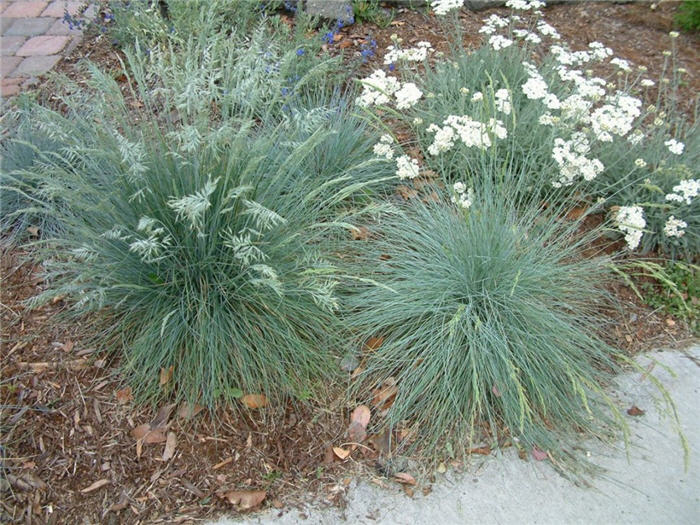| Botanical Name: Festuca ovina glauca | |
| Common Name: Blue Fescue |

-
Anatomy
-
Culture
-
Design
Plant Type
Ground cover, Grass
Height Range
Under 1'
Flower Color
Gold
Flower Season
Summer
Leaf Color
Green, Blue Green, Grey Green, Silver
Bark Color
n/a
Fruit Color
n/a
Fruit Season
n/a
Sun
Full, Half
Water
Very Low
Growth Rate
Moderate
Soil Type
Sandy, Loam, Rocky, Unparticular
Soil Condition
Average, Well-drained, Dry
Soil pH
Neutral
Adverse Factors
n/a
Design Styles
English Cottage, Japanese, Meadow, Mediterranean, Ranch, Seascape, Spanish, Native Garden, Woodland
Accenting Features
Unusual Foliage
Seasonal Interest
Winter, Spring, Summer, Fall
Location Uses
Entry, Perennial Border, Parking Strip, Patio, Parking Lot, Raised Planter, Walkways, With Rocks
Special Uses
Container, Erosion Control, Mass Planting, Lawn Alternative, Small Spaces
Attracts Wildlife
n/a
Photographer: Normans/Engstrom
-
Description
-
Notes